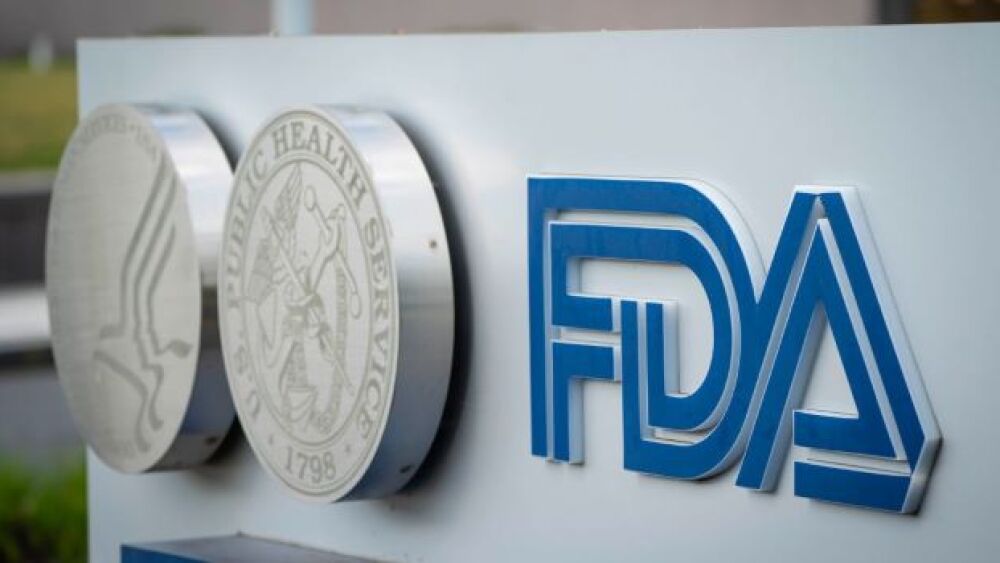RMAT designation means a faster, more streamlined approval process and frequent communication with FDA representatives. The FDA recently granted RMAT Designations to both Direct Bio and AlloVir.
Courtesy of Sarah Silbiger/Getty Images
AlloVir, a late clinical-stage allogeneic T cell immunotherapy company, announced Wednesday that it has received an FDA RMAT designation for its T cell therapy posoleucel.
Standard and complete approval from the U.S. Food and Drug Administration for a new drug or medical device can take years. Sometimes, if a product shows clinical promise and can treat a serious disease with high unmet needs, there are other avenues that companies can take with the FDA. Some common routes are the Breakthrough Therapy designation, the Breakthrough Device designation, Fast Track designation and the Orphan Drug designation.
However, another route exists that is less commonly known: the Regenerative Medicine Advanced Therapy (RMAT) designation. This designation is usually for cellular, genetic or other biologic therapies. An RMAT designation means a faster, more streamlined approval process and frequent communication with FDA representatives. Under RMAT designation, the FDA also provides guidance on the product’s development and may require post-market data.
The FDA grants RMAT designations to new drugs if the drug meets the following criteria:
- The drug is a cell therapy, therapeutic tissue engineering product, human cell product, tissue product, or any combination of those.
- The drug treats or cures a serious or life-threatening disease or condition
- Preliminary clinical evidence suggests that the drug has the potential to address the unmet needs of patients with that disease or condition.
AlloVir’s therapy posoleucel, an investigative T cell therapy, is designed to treat infections and diseases from six common viruses, including Epstein-Barr virus, cytomegalovirus and herpes virus-6.
This is the third RMAT designation posoleucel has received. The other two were for the treatment of hemorrhagic cystitis and adenovirus infections following hematopoietic cell transplant.
“The receipt of three RMAT designations for a single therapy is unprecedented. Posoleucel’s three RMAT designations reflect the strength of AlloVir’s multi-virus platform and its potential both to deliver an important treatment option for immunocompromised patients” said Ercem Atillasoy, M.D., chief regulatory and safety officer at AlloVir.
Several other cutting-edge biotech companies have recently achieved RMAT designations for their innovative biologic therapies. For example, Austin-based Direct Biologics, a biotech company that uses extracellular vesicle (EV) platform technology, received an RMAT designation from the FDA earlier this month. This designation was given for ExoFlo, which treats Acute Respiratory Distress Syndrome (ARDS) associated with COVID-19.
“After intensively reviewing our preclinical data, manufacturing processes, and clinical data from our Phase II multicenter, double blinded, placebo controlled randomized clinical trial, the FDA has recognized ExoFlo as a lifesaving treatment for patients suffering from Acute Respiratory Distress Syndrome (ARDS) due to severe or critical COVID-19,” said Mark Adams, CEO of Direct Biologics.
In January, Cellular Biomedicine Group received both an RMAT designation and a Fast Track designation from the FDA for its C-CAR039 therapy. The therapy is an autologous bi-specific CAR-T therapy that treats patients with relapsed or refractory diffuse large B cell lymphoma.
In all of these instances, companies had to provide some level of clinical data to prove that the therapy is effective before the FDA would grant them an RMAT. Usually, the existing clinical data is delivered concurrently with an Investigational New Drug (IND) application to the FDA. Sometimes, a request for an RMAT designation can be submitted as an amendment to an existing IND application.
RMAT designation is less stringent than several other types of FDA designations. However, since the RMAT designation was introduced in 2016, its request success rate by companies is about 40%- - the same as Breakthrough Therapy designation approvals.
As the designation is received by more companies and more RMAT-designated products hit the market, other companies may begin to take advantage of the flexibility the designation offers and explore more treatments for high-unmet-need diseases.





